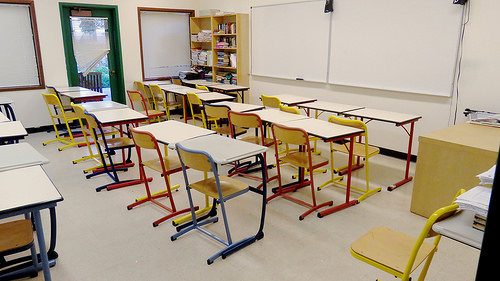Arab World: The Gift of Learning Arabic

Arabic is a difficult language to learn, but fluency is critical to God-glorifying church planting. Dick Brogden recently encouraged team members about the importance of language learning in church planting.
*****
Hello, Live Dead Arab World Family,
I wanted to send a short exhortation to those of you who are new to the field and still in language school.
When Jennifer and I first arrived in Sudan, we plunged into language study. We did 30 hours per week in class on top of our study, practice, and immersion, which included Arabic church. At the church we attended, I was occasionally asked to preach and I did so in English with a translator. Two years into language study I preached my first sermon in Arabic. I was elated. It was common for the pastors to walk out of the church first and stand in the courtyard where the congregants filed past to shake our hands.
One old man known for being direct came up to me, shook my hand, and said, “Thank you for preaching in Arabic. Please, never do it again!”
My inelegant and simple Arabic (compared to my preaching in English, which he had heard and understood) was painful for him to listen to. Nevertheless, I continued studying and preaching and by year five was fairly comfortable and capable to preach in Sudanese Arabic.
Over the last five years as we moved to Egypt and transitioned to a more administrative role, my Arabic has declined. I have preached one sermon here in Arabic, but most of the time I preach with translators as I did recently for a conference of the Bible Society up in the delta.
After the sermon (which was on missions), two different men approached me for counsel with complicated problems. It would have been challenging for them to answer in English, so I did the best I could in Arabic. I hated that I was guessing at understanding key parts and words of their problem and that my answers in Arabic were simple and choppy.
If I could take a one-year sabbatical from my responsibilities, I would dedicate it to language study, immerse myself in Arabic, serve on staff at a local church, and get back to the place where I can preach, teach, counsel, and evangelize in Arabic fluently. That may or may not happen—odds are against it—but there is one thing that is in my control: I can exhort, plan, arrange, insist, pray, and even demand that every new missionary has the opportunity to get to this place of fluency in Arabic. It is critical for the work of church planting. It is not optional.
Sue’s words from our winter conference ring in my ears—We can indeed be missionaries without language fluency, but we cannot really thrive or excel if we must always speak through translators. It’s kind of like the baptism of the Holy Spirit—there is no downside!
So friends, I urge you. Take advantage of your first term to study language. Fight through every distraction and discouragement. If it helps you, put 3×5 cards on your bathroom mirror in Arabic (or a reminder in your Bible) that say, “Preach – Teach – Pray – Sing – Counsel – Evangelize – Disciple – Joke – Read – Write.” Set those goals before you, that you will be able to do these things in Arabic with fluency. Remind yourself that this language learning fluency is God-glorifying church planting. Recommit to conquering this beast—no matter what it costs you. Arrange your schedule, your childcare, and your life patterns to get as much exposure to Arabic as you can.
I plead with you from the other side—don’t end up like so many of us, embarrassed and full of regrets at our limitations in language.
We are making it possible for you in our training teams to devote yourself to language study that you may surge past the low level we achieved and to thrive in this beautiful opportunity of ministering freely in Arabic.
Friends and saints, press on to this high calling of Jesus. It is a gift to you. Please do not scorn the opportunity. For the joy that is set before you, press on!
Dick




